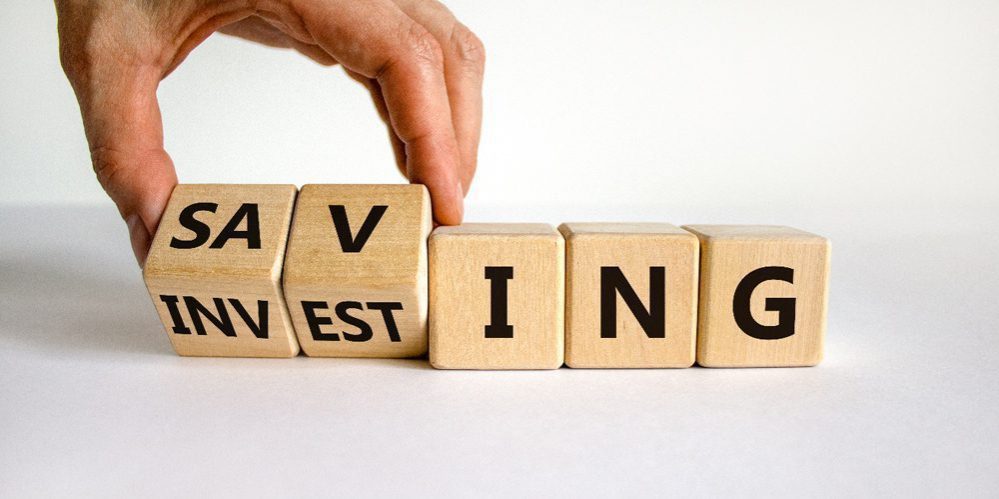The popularity of the side hustle has been on the rise in recent years. More and more people are looking for ways to make some extra income outside of their full-time jobs. This can be a great way to create diversity in your income stream, and with a little bit of luck and lots of hard work, it could become something you do full-time. However, when it comes to tax season, there are some things you need to know about how the Internal Revenue Service views your side hustle. Is your activity considered a business or just a hobby? Does it matter? Here’s what you need to know before sending off your tax returns.
Before we start going into serious matters, let’s see how the term business is defined. The IRS says that a business is an activity you do to organize some sort of economic production. This can include selling goods or services, investing, and/or making a profit. If your goal is to make a profit, then your activity is likely considered a business by the IRS.
There are some exceptions to this rule, however. The IRS says that if you’re not in it for the money, then it’s probably not a business. This includes activities like gambling, collecting coins, and hobby-type work. So, if your side hustle is something you do for fun and don’t expect to make any money from it, the IRS is likely to see it as a hobby.
What is a side hustle and why are they so popular lately?
A side hustle is a supplemental income-generating project that an individual pursues outside of their primary job. They are typically businesses or ventures started by individuals looking to make extra money or to transition into a new career. Side hustles have become increasingly popular in recent years as the cost of living has risen and job security has declined.
For many people, a side hustle provides a way to make ends meet or to save for a major purchase, such as a house or a car. It can also be a way to test out a new business idea without quitting one’s day job. And for some people, side hustling is simply a way to explore their creativity and pursue their passions.
Examples of side hustles include freelance writing, graphic design, web development, virtual assistantship, online selling, tutoring, babysitting, dog sitting, and more.
Now that we have a better understanding of what a side hustle is, let’s take a look at whether or not the IRS considers them to be businesses.
How do you know if your side hustle is actually a business
You’ve been slaving away at your 9-5 for years now, making someone else rich and barely getting by. You’re not alone. In fact, you’re part of the majority. The majority of people are in a job they hate, working long hours for little pay and no chance of advancement. But there’s a way out. It’s called the side hustle.
The side hustle is your ticket to financial freedom. It’s a way to make money doing something you love. But it’s not always easy to turn your passion into a profitable business. So how do you know if your side hustle is a business or just a hobby? Here are some signs that your side hustle could be a business:
1. You’re making money – If you’re not generating revenue, then chances are your side hustle is just a hobby. But if you are making money from your side hustle, then it’s definitely a business.
2. You have customers – A key sign that your side hustle is a business is if you have paying customers. If people are willing to buy what you’re selling, then it’s definitely a business.
3. You have expenses – Another sign that your side hustle is a business is if you have expenses related to your side hustle. This could include things like marketing costs, inventory costs, or even office space rental costs. If you’re spending money to keep your side hustle going, then it’s definitely a business.
4. You’re putting in long hours – If you’re working on your side hustle every evening and weekend, then it’s safe to say it’s not just a hobby anymore. When you start treating your side hustle like a business, putting in the extra hours to make it successful, then it’s definitely become a business.
If you can relate to any of the above signs, then chances are your side hustle is starting to look more like a business than just a hobby. And that’s an exciting place to be! Once you know your side hustle is considered a business, you can start taking steps to grow and scale it into a successful enterprise.
What are the benefits of treating your side hustle as a business?
When most people think of a side hustle, they envision a fun hobby that brings in a little extra cash. However, treating your side hustle as a business can have a number of benefits.
For starters, it can help you to better manage your time and resources. By thinking of your side hustle as a business, you’ll be more likely to set clear goals and create a schedule that allows you to steadily work towards those goals.
Additionally, treating your side hustle as a business can help you to build valuable skills and connections. Networking and marketing are essential for any business, and developing these skills can give you a leg up in your career, even if your side hustle doesn’t eventually turn into a full-time business.
Treating your side hustle as a business can simply make it more enjoyable. When you view your hobby through the lens of entrepreneurship, you may find that it becomes more challenging and rewarding. So whether you’re looking to boost your career or simply want to get more out of your hobby, treating your side hustle as a business is a great way to do it.
Do I need to register my side hustle business?
Starting a side hustle is an exciting way to earn some extra income, but it’s important to make sure that you’re operating within the bounds of the law. Depending on the type of business you’re running, you may need to register it with the appropriate government agencies. For example, if you’re selling products, you’ll need to obtain a business license and probably also a sales tax permit. If you’re providing services, you may need to register as a sole proprietor or LLC. And if you’re running a food-related business, you’ll need to comply with all applicable health and safety regulations. Failure to do so could result in costly fines or even having your business shut down. So before you start your side hustle, take the time to research any legal requirements that apply to your particular business. That way, you can be sure that you’re operating above board and avoiding any potential headaches down the road.
For tax purposes, you definitely need to register your business, no matter how small it may be. It does not matter if you’re registering as a sole proprietor, LLC or corporation. Any business needs a registration in the US. The IRS has a number of resources available to help you do this, so be sure to take advantage of them.
What business form is the best for my side hustle?
If you’re starting a side hustle, you may be wondering what kind of business structure is best for your new venture. There are three common business structures: sole proprietorship, LLC, and corporation. Each has its own benefits and drawbacks, so it’s important to choose the one that’s right for your business.
A sole proprietorship is the simplest and most common business structure. It’s easy to set up and doesn’t require any special paperwork. The downside is that you’re personally responsible for all debts and liabilities, so if your business fails, you could lose your personal assets.
An LLC, or limited liability company, offers some protection from personal liability. This means that if your business is sued, your personal assets are safe. LLCs are also easy to set up and maintain. The downside is that they can be more expensive to establish than a sole proprietorship, and they may be subject to more regulations.
A corporation is a more complex business structure with many benefits. For example, a corporation can help you raise capital by selling shares of stock. But setting up a corporation can be costly and time-consuming. You’ll also need to follow corporate governance rules, which can be complex.
The best business structure for your side hustle depends on a number of factors, including the size and type of business, the amount of liability exposure you’re willing to take on, and the amount of time and money you’re willing to invest in setting up your business. Talk to an experienced attorney or accountant to get advice on which business structure is right for you.
Side hustles and taxes – how much do I need to pay
Most people are aware that they need to file taxes every year, but what many don’t realize is that if you have a side hustle, you also need to file taxes for your business. Whether you’re a freelancer, a small business owner, or you sell products online, you need to file taxes for your business. The good news is that there are several deductions and credits available for businesses, so you may be able to lower your tax bill. However, it’s important to remember that you need to file your taxes regardless of whether or not you make a profit. If you don’t file your taxes, you could be subject to penalties and interest charges. So if you have a side hustle, be sure to talk to a tax advisor and make sure you’re paying your fair share.
Pass-Through Taxes
Pass-through taxes are a type of taxation where businesses “pass-through” their profits to their owners, who are then taxed on their personal income tax returns. This type of taxation is used by sole proprietorships, partnerships, limited liability companies (LLCs), and S corporations. The main advantage of pass-through taxation is that it avoids the double taxation of corporate profits that occurs with C corporations. In addition, pass-through businesses can deduct losses from their personal income taxes, which provides them with a tax advantage over C corporations. While pass-through taxation can be advantageous for business owners, it can also be complex and difficult to understand. As a result, it’s important to work with a tax professional to ensure that you’re taking advantage of all the benefits of this type of taxation.
Federal and State business taxes
Business taxes can be divided into two broad categories: federal and state. Federal taxes are levied by the United States government and apply to businesses nationwide. State taxes, on the other hand, are imposed by individual states and may vary from state to state.
Businesses are required to pay both federal and state taxes on their income. The amount of tax that a business owes is determined by its taxable income, which is the total amount of income earned minus any deductions or exemptions. Deductions and exemptions can include things like the cost of goods sold, employee salaries, and interest expenses.
The tax rate for businesses varies depending on the type of business and its taxable income. For example, small businesses generally have a lower tax rate than large businesses. Businesses that earn a high income are typically taxed at a higher rate than those that earn a low income.
Federal and state taxes are both important sources of revenue for the government. Businesses are required to pay both types of taxes in order to operate legally. Failure to pay business taxes can result in severe penalties, including fines and jail time.
How to turn your side hustle into a full-time job
A side hustle is defined as a way to make money outside of your primary job. This can be anything from freelance work to starting your own business. Many people pursue side hustles in order to make extra money, but how do you know if your side hustle has potential to become a full-fledged business? Here are a few things to look for:
1. Are you passionate about what you’re doing? If you’re not passionate about your side hustle, it will be very difficult to turn it into a successful business. You need to be willing to put in the hard work and long hours required to make a business successful.
2. Do you have a niche market? It’s important to have a clear target market for your product or service. Without a niche market, it will be very difficult to generate sales.
3. Do you have a uniue selling proposition? What makes your product or service different from others on the market? If you can’t answer this question, it’s likely that your side hustle won’t be successful as a business.
4. Do you have a plan? A business needs a solid plan in order to be successful. This includes things like identifying your target market, setting sales goals, and creating a marketing strategy. If you don’t have a plan, it’s unlikely that your side hustle will be successful as a business.
5. Are you willing to invest time and money? Starting a business requires a significant investment of both time and money. If you’re not willing to make this investment, it’s unlikely that your side hustle will be successful as a business. Pursuing a side hustle can be a great way to make extra money, but it’s important to make sure that it has the potential to become a full-fledged business before making the commitment. Otherwise, you may find yourself stuck with something that isn’t as profitable or fulfilling as you had hoped.
The risks associated with treating your side hustle not as a business
You might be passionate about your side hustle, but if you’re not treating it like a business, you’re putting yourself at risk. Here are a few of the dangers of not taking your side hustle seriously:
1. You could miss out on opportunities.
If you’re not treating your side hustle as a business, you could miss out on opportunities to grow and make more money. For example, you might not invest in marketing or networking, which could limit your reach and growth potential.
2. You could waste time and money.
Not treating your side hustle as a business could also lead to wasted time and money. If you’re not staying organized or keeping track of your expenses, you could quickly find yourself in over your head financially. This can lead to frustration and even resentment towards your side hustle, which is the last thing you want.
3. You could miss important tax deductions.
If you’re not running your side hustle like a business, you could also miss out on important tax deductions. This can cost you money come tax time, and it’s something that is easily avoidable with a little bit of planning and organization.
4. You’re not setting up your side business for growth
If you’re not treating your side hustle as a business, you’re also not setting it up for future growth. This means that if your side hustle does start to take off, you may not be prepared to handle the growth. This can lead to all sorts of problems down the road, so it’s best to plan for growth from the start.
Bottom line: Treating your side hustle like a business is essential if you want to be successful. By taking some basic steps to get organized and invest in your growth, you can set yourself up for long-term success.























